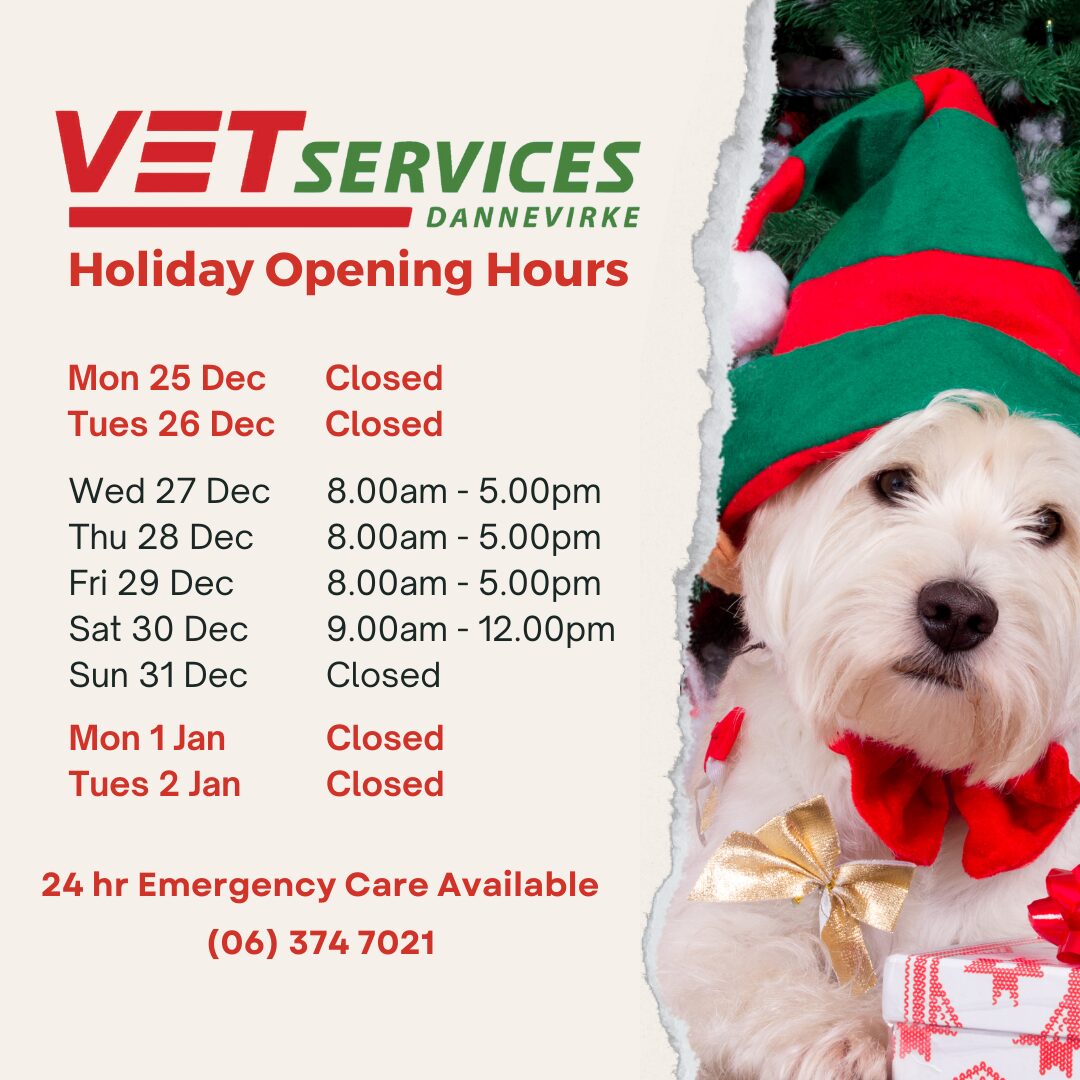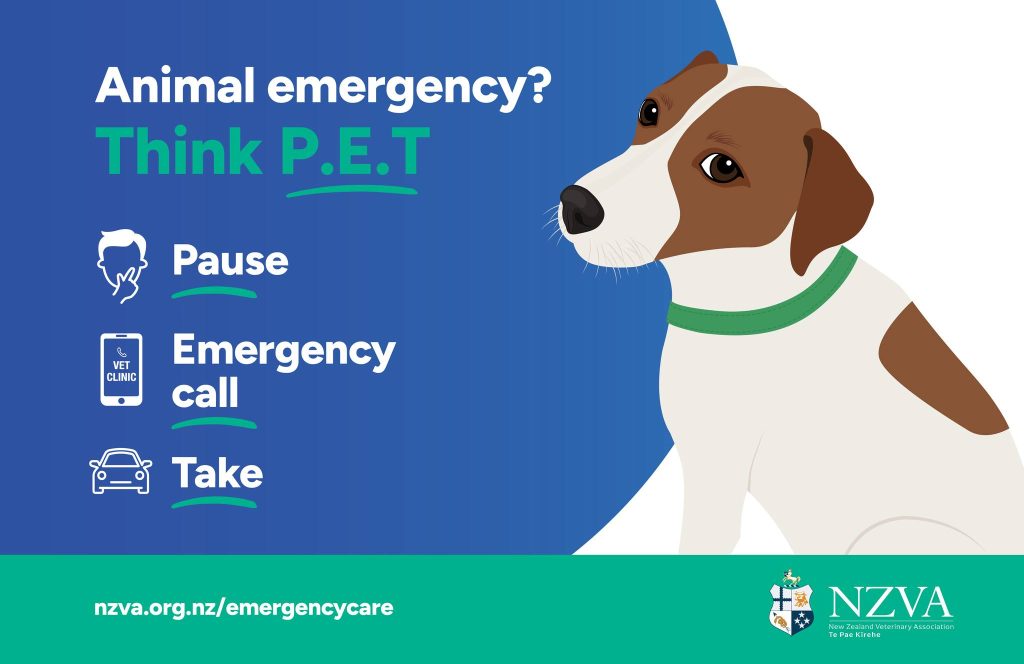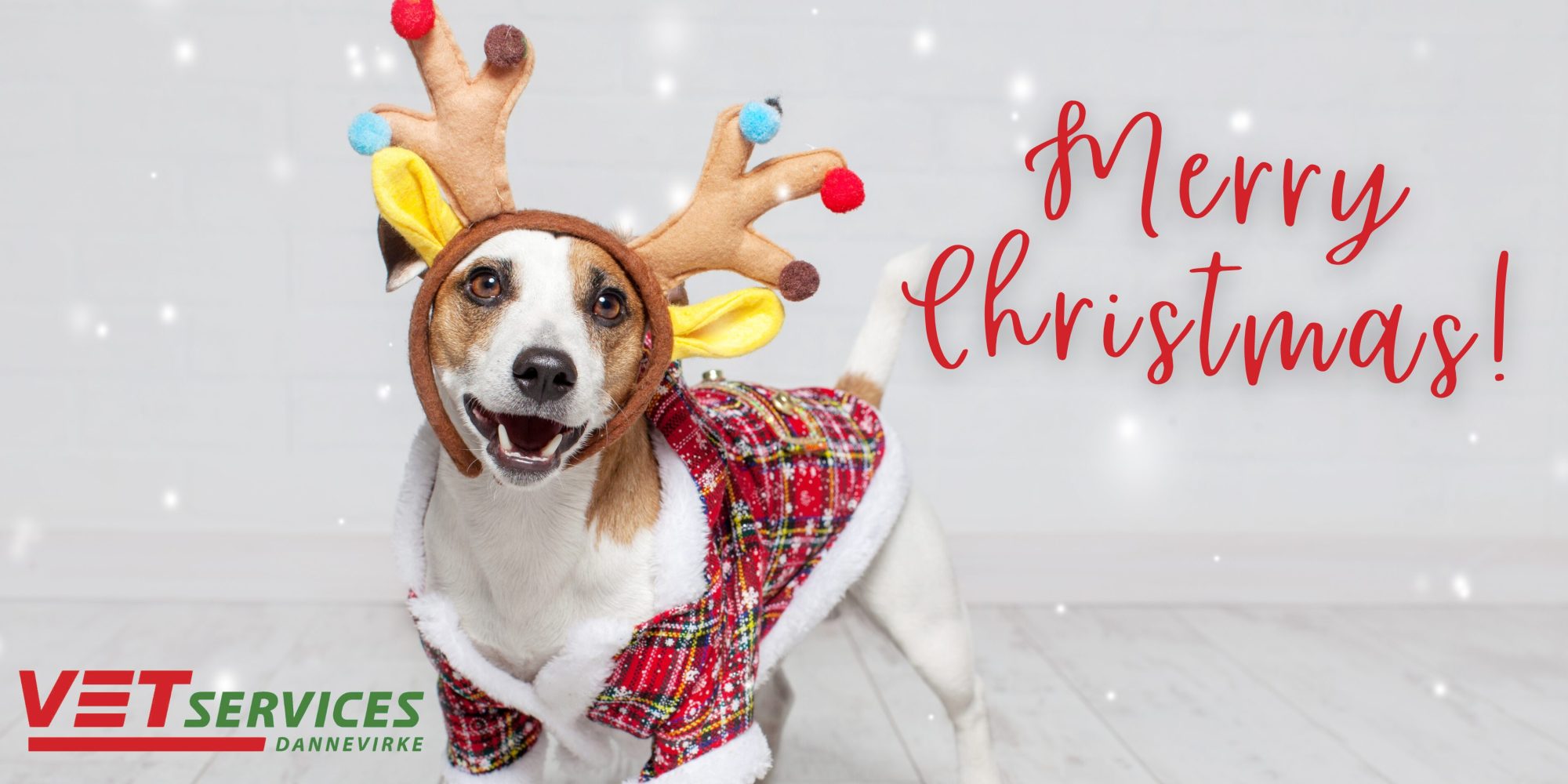Merry Christmas from the team at Vet Services!!
Enjoy time with friends and family, put your feet up and have a well-deserved rest this Christmas and we look forward to seeing you again soon.
If you do need emergency assistance with your animals over the Christmas break please do not hesitate to contact us – our on duty team will remain available and are just a phone call away if required.
_________________________________________________________________________________________________________________________
CHRISTMAS AND NEW YEAR CLINIC HOURS

_________________________________________________________________________________________________________________________________________________

Enjoy the holidays but remember your pet’s safety and heightened sensitivity to some of our favourite things. Never underestimate a food loving dog’s ability to smell out and find food stuff not intended for them!!
Here are a few things to keep in mind
🍫 Chocolate: Wrapped up under the Christmas tree, the festive season is the most common time to see chocolate toxicity in dogs. Try to keep chocolate out of reach!
🍖 Christmas Ham, leftovers and bones: Cooked bones are brittle and easily fracture resulting in obstructions or perforations. Fatty rich meats can cause vomiting, diarrhoea or even pancreatitis. Avoid being tempted to give your pets left overs.
🌰🍇 Grapes, raisins and nuts: Macadamia nuts are one of the more toxic nuts for dogs. Grapes and raisins can cause irreversible kidney failure so should be avoided completely – this includes Christmas cake and mince pies!
🔋 Battery operated toys: Batteries, particularly button batteries found in toys are highly dangerous if swallowed or chewed.
🥑 Avocados: These can result in gastroenteritis, and dogs are often very keen to eat them.
🌺 Christmas lilies: Beware of those beautiful bouquets you may have around your home this Christmas. Lilies are highly toxic and can cause severe kidney effects in cats.
🎄 The Christmas tree: Lights, wires and tinsel can be dangerous. Cats have been known to eat tinsel and dogs are tempted by DIY dough ornaments. Some cats like to climb the tree so take care to secure it well if you have an athletic cat.
🎆 New Year’s fireworks: There are often fireworks on New Year’s Eve so you may want to keep your pets indoors.
Garden supplies: While gardening in the sun with your pet makes for a great day, there are many hazards for your pet in the garden that pet parents should be mindful of including toxic fertiliser and slug bait.
If mishaps do occur or you are concerned about something your pet has eaten, please don’t hesitate to get in touch with us.
__________________________________________________________________________________________________________________________________

Dogs do not perspire the way humans do; in fact, the only sweat glands that they have are on the pads of their feet.
Dogs pant to cool themselves. If the surrounding air is not considerably cooler than the animals’ body temperature – as in the case of a hot, stuffy vehicle – the cooling system will not work and heatstroke can occur.
______________________________________________________________________________________________________________________________________

Canine parvovirus, commonly called ‘Parvo’, is a highly infectious and often lethal disease that affects puppies and dogs.
You can start your puppies’ course of vaccinations from 6 weeks of age. Your veterinarian will let you know how many puppy vaccinations your puppy requires – usually 2 or 3, followed by an annual booster.
Because the virus is extremely contagious and can remain in an environment for years, we strongly recommend you do not walk your puppy in public areas and dog parks until they have finished their course of vaccinations.
_____________________________________________________________________________________________________________________________

ANIMAL EMERGENCY AFTER HOURS? THINK P.E.T
Animal emergencies can happen any time of day. If your pet is unwell or hurt and your vet clinic is closed, please follow these three steps:
Pause. Think for a moment about whether your pet needs emergency care or could be seen by their vet during normal business hours.
Emergency call. Phone your vet clinic for advice if you think your pet needs emergency care or you’re unsure. One of our experienced staff members will assist you and your animals with the necessary next steps
Take. Follow the advice you receive to either take your pet to an emergency service provider, or book an appointment during normal business hours.
Please note, our online booking option is not suitable for emergencies and that our email and messenger are not monitored during non business hours. Give us a phone call and we will be able to help.




